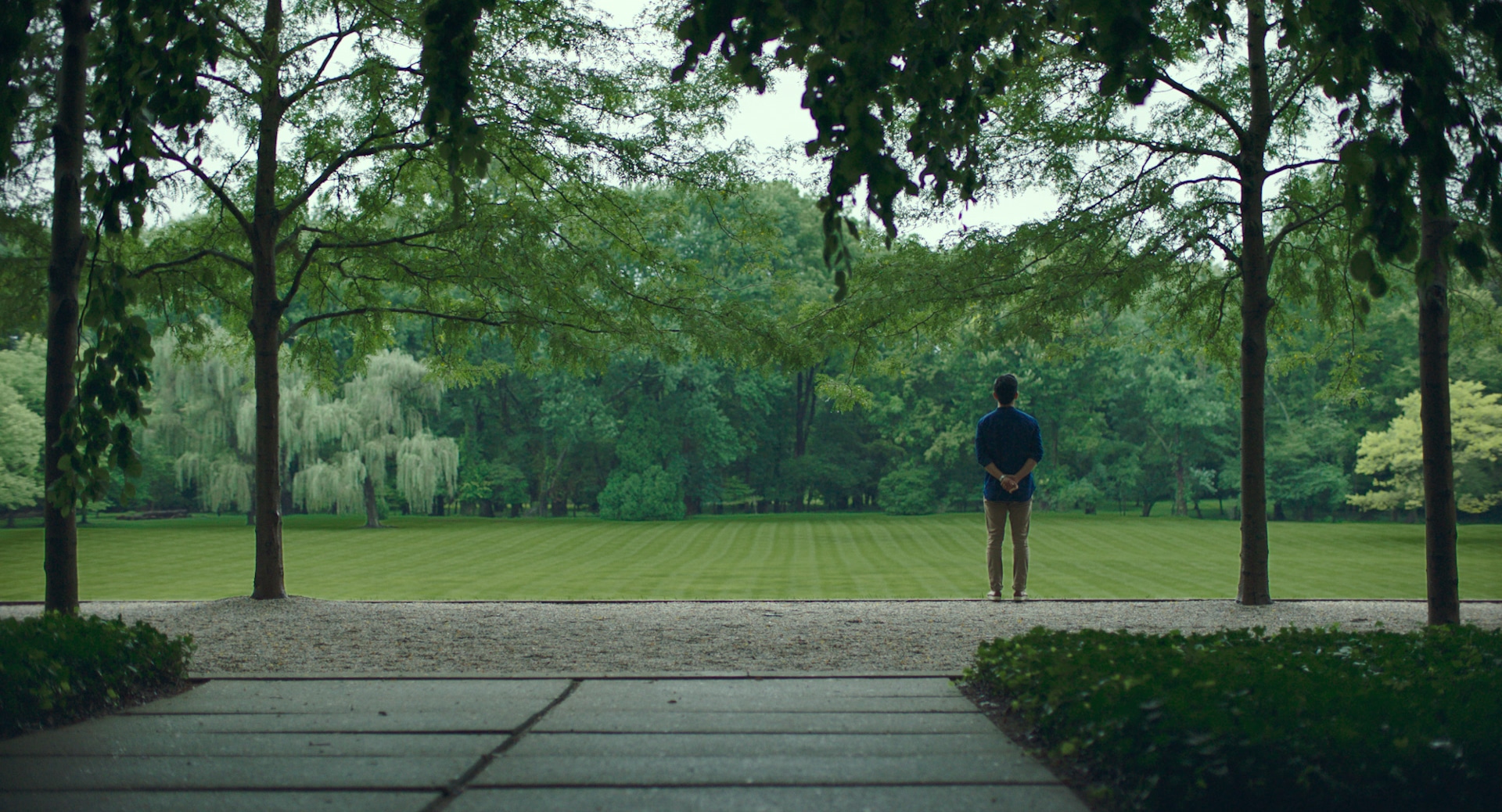
“You need to stop feeling bad.”
“Yeah. So do you.”
The son of a renowned architecture scholar Jin (John Cho) flies to Columbus, Indiana to be by his father’s side after he suddenly falls ill. While there, Jin meets and strikes up a friendship with a young architecture enthusiast named Casey (Haley Lu Richardson) who lives with her single, former addict mother. While they tour the city’s architecture, the two help each other sort through the uncertainty in their lives.
The relationship between Jin and Casey, and the film’s prevailing theme, is about parent-child relationships, the burdens that these relationships sometimes create for the children involved, and how those burdens affect lives. Casey and Jin’s respective relationships with their parents are mirror opposites. Jin’s burdensome relationship with his father stems from his father’s neglect and failure to create any sort of emotional bond with his son. This has created feelings of distance and bitterness for Jin toward his father. Casey on the other hand is burden by her fear of being neglectful toward her mother who is susceptible toward bad relationships with men and drug abuse with Casey’s love serving as a preventative force against these vices. As a result, Casey is scared to pursue her own dreams and fulfill her own potential if doing so would pull her away from Columbus and her mother, leaving her Casey’s mom alone and more vulnerable to outside influences. The desire within Casey to satisfy her longing for intellectual satisfaction is evident throughout the film; whether it’s her initial flirtation and curiosity with her co-worker at the library Gabriel and his grad school background (Rory Culkin) or her zeal to connect with Jin after finding his mutual admiration for architecture. It’s through Jin that Casey is able to overcome her fear of failing her mother, finally leave the nest, and go about finding herself. The sense of responsibility that Casey feels toward her mother is something that is seemingly common in the children of single parents and was interesting to see explored.
The cinematography in Columbus is a real standout with director Kogonada and cinematographer Elisha Christian using a copious amount of extreme long shots that linger for long periods of time to establish scenes. It’s a simple shot but one of the film’s best is when Casey and Jin first meet outside. The two walk along with a fence separating them and as the conversation goes on longer and they become more comfortable with each other, the fence finally ends and they come face to face. The fence representing their unfamiliarity and its end signaling their new rapport and the birth of their friendship was superb symbolism. Another scene featuring Jin and one of his father’s old students/Jin’s childhood crush Eleanor (Parker Posey) is shot with both characters appearing onscreen through their reflections in two separate mirrors in a room. It’s the best shot in a film so far this year and excellently done. Columbus is a film that really focuses on telling the story and conveying what characters are thinking and feeling through its visuals.
Cho and Richardson are great in their portrayals of these characters that are suffering in silence and deftly portray them with the subtlety required. Columbus is a movie that is built more on subtlety; it’s not very boisterous or loud or obvious. This can cause it move a little slow at points, potentially alienating a lot of viewers. I also felt that the movie presented little, if anything at all, in the way of resolution for Jin and his relationship with his father. He and Eleanor have a tense conversation regarding his need to stay by his father’s side for as long as it takes, even if he is just waiting for him to succumb to his illness. But the lack of any clear ending for his feelings of neglect and bitterness toward his father made the film venture off into the category of the “magical minority” whose sole purpose in appearing in the film was to serve as a vehicle for the transformation of the white co-lead.
All in all, Columbus is an interestingly shot film that subtly examines what it’s like to carry around the biggest pain of all, hurt stemming from one’s relationship with a parent. The film also deserves credit for not going for the easy and obvious romance angle between its male and female leads, but instead opting to examine intimacy on a platonic level, something that is all too rarely explored on film. It can be slow at times but contains good performances from its cast and is a pleasure visually.
Image: Sundance Institute

